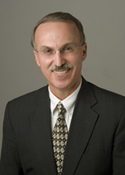
|
     |
|||
Research Interests |
||||
My recent research focuses on health inequality over the life course. Current projects examine minority health, obesity and health, and the long term consequences of early adversity on adult health. For the past two decades, I have studied inequalities in health and health service use between White and African Americans. In recent years, I have extended this line of inquiry to studies of Hispanic health. My research on obesity examines the health consequences of excess body weight, especially whether the duration of obesity accelerates health decline and increases health service use. Drawing from my prior studies examining the link between childhood overweight and adult obesity and health, I am currently examining the health consequences of other forms of early misfortune. Owing to my interests in how stratification processes unfold over the life course, I have developed a theory for the study of human development, aging, and health: cumulative inequality theory. I anticipate further developing the theory in coming years and crafting empirical research projects to test elements of it. The first such empirical tests are derived from my substantive research interests of minority health and obesity. For more information on the theory, see: Ferraro, Kenneth F., Tetyana Pylypiv Shippee, and Markus H. Schafer. 2009. “Cumulative Inequality Theory for Research on Aging and the Life Course.” In Handbook of Theories of Aging, Second Edition (edited by Vern L. Bengtson, Merril Silverstein, Norella M. Putney, and Daphna Gans). New York: Springer Publishing. Ferraro, Kenneth F. and Tetyana Pylypiv Shippee. 2009. “Aging and Cumulative Inequality: How Does Inequality Get Under the Skin?” The Gerontologist 49:333-343. In 1990, I developed the idea of a gerontological imagination—a paradigm for the field of gerontology. The gerontological imagination is an awareness of the process of human aging that enables one to understand the scientific contributions of a variety of researchers studying aging. In addition, this awareness allows people (not just gerontology scholars) to comprehend the links between biological, behavioral, and social structure factors that influence human aging. For more information on the gerontological imagination, see: Ferraro, Kenneth. F. 2007. The Gerontological Imagination. In Janet M. Wilmoth and Kenneth F. Ferraro, editors. Gerontology: Perspectives and Issues, third edition. New York: Springer Publishing. Finally, my research program has been greatly aided by the many bright young professionals with whom I have worked over the years. Although I cannot name all of them here, I would like to mention a few of my former Purdue University students who continue to excel as scholars: Melissa Farmer, Ya-Ping Su, Jessica Kelley-Moore, Shalon Irving, Roland Thorpe, Yunqing Li, Min-Ah Lee, Tetyana Pylypiv Shippee, and Markus Schafer. They have been an integral part of my research program. Further information about my research interests may be gleaned from my vita or NIH biosketch. |
||||
